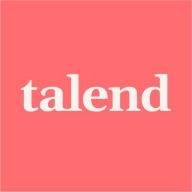

Talend Data Quality and Ataccama ONE Platform are notable contenders in the data management market. Talend Data Quality appears to have an edge in pricing and customer support, while Ataccama ONE is preferred for its extensive features.
Features: Talend Data Quality is appreciated for its comprehensive data profiling, validation, and enrichment capabilities, integrating seamlessly with other Talend tools. Meanwhile, Ataccama ONE Platform is recognized for its AI-driven tools, excellent automation, and advanced analytics.
Room for Improvement: Talend Data Quality could benefit from enhanced automation options, a more intuitive interface, and expanded native integrations. Ataccama ONE Platform may improve by reducing deployment complexity, providing more straightforward configuration options, and enhancing user interface intuitiveness.
Ease of Deployment and Customer Service: Talend Data Quality is commended for its easy deployment and responsive customer service, facilitating quick implementation. Ataccama ONE, while sophisticated in deployment, offers strong support but may require more setup time initially.
Pricing and ROI: Talend Data Quality is attractive for its competitive pricing and strong ROI. Ataccama ONE, though with higher initial costs, justifies these with its robust features and long-term benefits, making it an investment for enterprises needing comprehensive data management.
| Product | Market Share (%) |
|---|---|
| Ataccama ONE Platform | 6.7% |
| Talend Data Quality | 4.9% |
| Other | 88.4% |


| Company Size | Count |
|---|---|
| Small Business | 3 |
| Large Enterprise | 7 |
| Company Size | Count |
|---|---|
| Small Business | 9 |
| Midsize Enterprise | 4 |
| Large Enterprise | 4 |
Ataccama ONE Platform provides a comprehensive solution for profiling, cleansing, and integrating data with a user-friendly drag-and-drop interface, enhancing data quality and governance.
Ataccama ONE Platform enhances data profiling and cleansing with easy configuration and robust integration, such as with Collibra. Users value its drag-and-drop capabilities, supporting mainframe, AI, and machine learning. The platform improves data security through profiling and masking while offering extensive integration options. Some areas needing improvement include large database handling and batch management. Additional support for social media data sources, better documentation, and clearer language would be beneficial. Enhanced interfaces, particularly with Collibra, and refined notification systems are desired. This platform suits users seeking improvements in data quality, governance classification, and data migration, connecting with sources like Microsoft SQL, Oracle, and Teradata.
What are the key features of Ataccama ONE Platform?In industries like finance and healthcare, Ataccama ONE Platform facilitates data quality management and ensures compliance by connecting with data sources such as Microsoft SQL and Oracle. These industries utilize it for data migration tasks, ensuring data integrity through mapping and transformation processes.
We monitor all Data Quality reviews to prevent fraudulent reviews and keep review quality high. We do not post reviews by company employees or direct competitors. We validate each review for authenticity via cross-reference with LinkedIn, and personal follow-up with the reviewer when necessary.